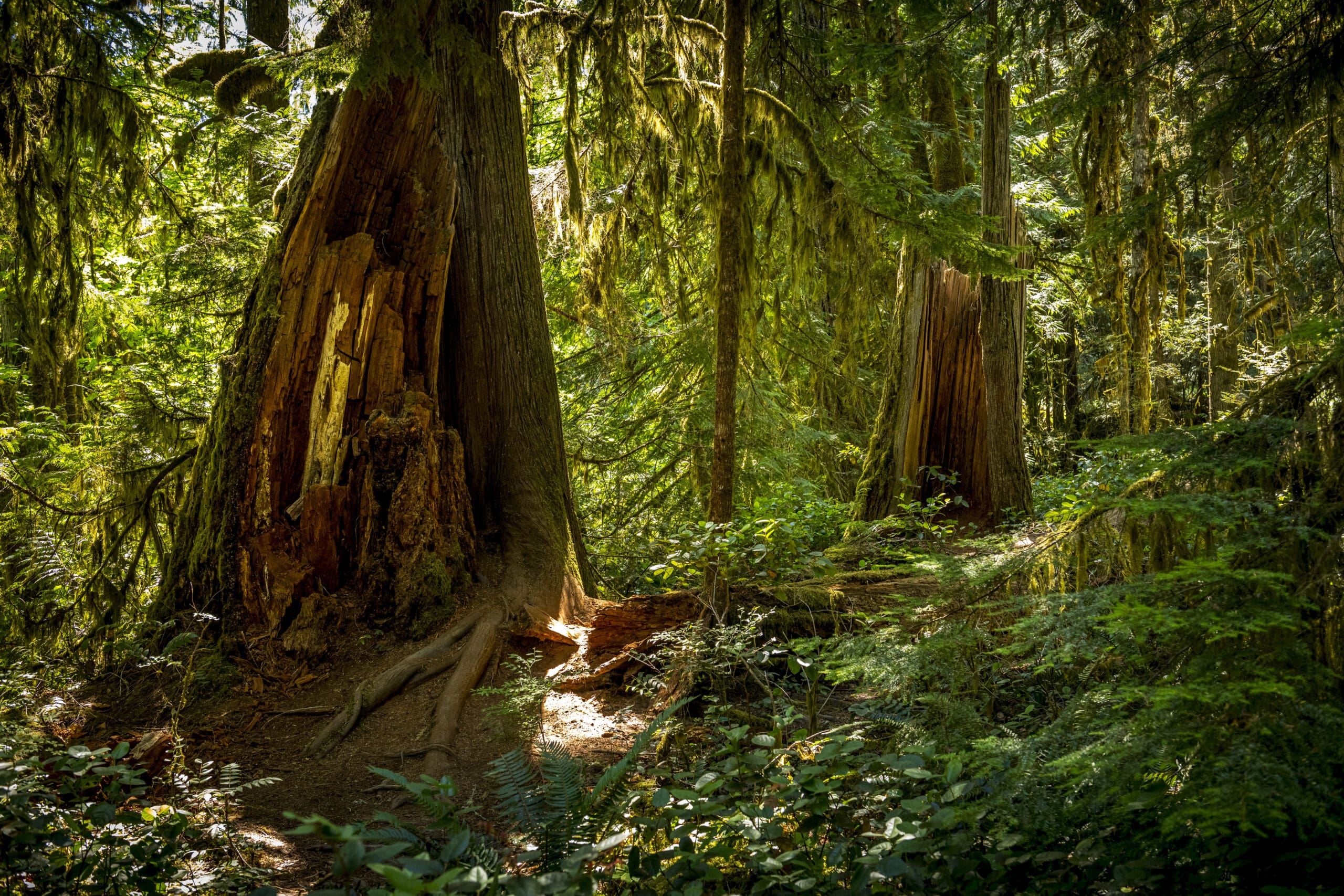—Whole trees, not just wood waste being used—
VANCOUVER — A union representing forest industry workers and environmental organizations are demanding that the provincial government halt any approvals of new wood pellet mills in BC pending an independent review into the industry’s escalating logging activities.
The call comes as new research published today by the Canadian Centre for Policy Alternatives (CCPA) shows large volumes of trees have been logged by the industry since 2010. New photos and video released today from an investigation in northern BC shows wood pellet plant yards in Burns Lake, Smithers, and Houston overflowing with logs.
“The industry and government insist ‘residuals’ like wood waste from sawmills are used primarily to make wood pellets. But in fact, pellet companies are using logs from whole trees to feed straight into their mills. That’s bad news for our forests, rural towns, workers and the climate alike,” says Ben Parfitt, a policy analyst with the CCPA’s BC office.
“We need to push the pause button on pellet mills until we figure out where the trees logged in BC are going. Twenty years ago, 91,000 people worked in our forest industry. Today, it’s less than 49,000. We desperately need to make higher-value forest products and generate far more jobs from each tree we log. There’s a place for pellet mills in BC, but at the end of the line, not the beginning,” says Gary Fiege, president of the Public and Private Workers of Canada.
“We need a moratorium right now. Logging trees from primary forests just to turn them into pellets and burn them is a climate disaster—one that’s even worse than burning coal. Scientists are warning that the planet cannot afford the massive increase in carbon emissions that comes from burning wood for power,” says Tegan Hansen, forest campaigner with Stand.earth.
The CCPA research shows that since 2010, wood pellet companies took at least 1.3 million cubic metres of logs out of BC forests, led by Pinnacle Renewable Energy, which is being taken over by UK-based thermal electricity producer, Drax.
The research also notes that:
- Nearly 12 per cent of everything logged in BC eventually ends up as pellets.
- The industry generates few jobs, with only a little more than 300 people—half of one percent of BC’s forest industry workforce—employed in 14 mills.
- Wood pellet mill yards are filled with logs that are slated to be turned directly into wood pellets. A proposed pellet mill in Fort Nelson would require roughly 1.5 million trees per year to be logged to sustain its operations.
“We are extremely concerned that primary forests are being logged for the sole purpose of turning trees into wood pellets and that things will get far worse if the proposed wood pellet mill in Fort Nelson is built,” says Michelle Connolly, director of Conservation North.
“BC’s Forests Minister, Katrine Conroy, has been told to protect more old-growth forests and move the forest industry up the value chain. Turning trees directly into pellets subtracts value from both our forests and jobs base and must be stopped before entire ecosystems are lost.”
For further information and interviews contact: Jean Kavanagh at 604-802-5729, [email protected]
The Canadian Centre for Policy Alternatives is an independent, non-partisan research institute that focuses on social, economic and environmental justice issues.

